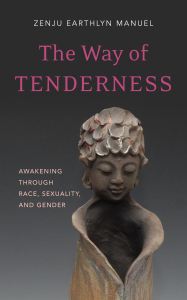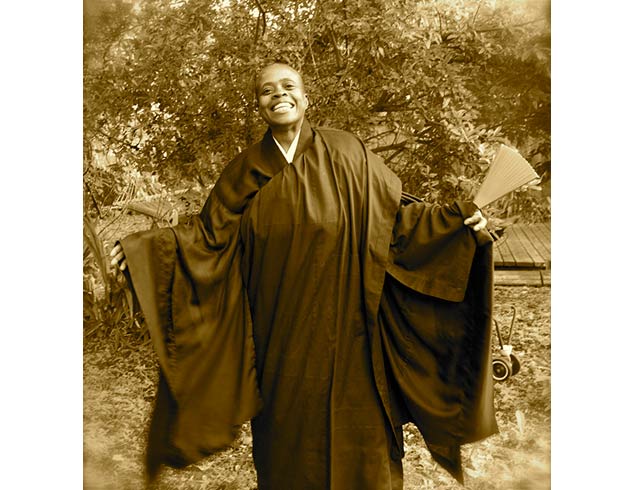What I Read: “The Way of Tenderness: Awakening Through Race, Sexuality and Gender”
This book by Zenju Earthlyn Manuel is essential reading for all Buddhists. Essential.
It is an honest account which examines the injustices of racism, sexism and gender-based oppression from the standpoint of a Buddhist who has experienced each throughout her life. I believe that all sanghas need to read this book in order to truly examine what it means to provide an inclusive and welcoming environment. Many personal anecdotes are cited within its pages and I was left feeling quite uncomfortable by many parts of the book where I was left feeling so terribly sad after reading about the injustices faced by Zenju throughout her life.
It’s a rare book sadly, as the Buddhist bookshelves are not stocked up with books that cover the topics of race, sexuality and gender (as much as we truly need them). These aren’t topics commonly addressed within our sanghas either, given that we may feel unnecessary discomfort in bringing them up. Our failure to do so prevents us from developing as individuals and as a community. It is quite harmful and limites our potential.
The book offers a call for tenderness in the face of this oppression. Tenderness in exploring the pain and suffering present with such divisiveness and hatred. Sure anger has it’s place, but the author asserts that true change comes from tenderness.
“The Way of Tenderness” isn’t written with just one audience in mind, rather takes into account academics, activists, those who are spiritually-minded and those who are both marginalized and privileged. It’s an accessible, honest and passionate read.
Much of the book speaks to the concept of labels and identity and whether, beyond the Buddhist belief that these are to be transcended, they are actually helpful in order for awakening. The suffering caused from facing the challenges and discrimination inherent having been born in a body deemed ‘not normal’ or ‘displaying tendencies or desires outside of the norm’ are ideal tools for awakening according to Zenju. One needs to study the self in order to discover this very tenderness that she believes is so vital to help with transcendence and liberation. By exploring hatred, we come to know peace.
How can a path to spiritual liberation possibly unfold if we turn away from the realities that particular embodiments bring? To confront hatred with spirituality is to confront the way we view race, sexuality, gender, or whatever form of embodiment we are as living beings. To provide a meaningful path to spiritual liberation, spirituality must acknowledge the body and the denigration of certain types of bodies in the world. We cannot close our eyes to these phenomenon if we really want to be awake and aware.
“The Way of Tenderness: Awakening Through Race, Sexuality and Gender” is a vital read. I only hope that more books, communities, teachers and students begin the dialogue around the issues which Zenju addresses within this book. This is where we will start to see true change emerge and our sanghas and our selves can be fertile ground for the love, compassion and tenderness that the world so desperately needs - regardless of our perceived differences.
Comments are closed.



thanks for this wonderful book recommendation. I often feel like “the only one” in my sangha: the only queer in a community full of super straight people. ‘Tenderness’ seems like a really good practice. Also, despite being queer, my chief marker in life is that I’m white. White privilege means that even though I’m queer and I’ve struggled a lot, my life doesn’t suck. White privilege allows me a certain ‘comfort zone’ that protects me from the worst that society can dish out. So I have to learn how to face racism with ‘tenderness’ also.
It is a book that I think all sangha members need to read in order to tune into the needs of all of our dharma brothers and sisters and to consider how to become more inclusive.
I wish it would have received more press than it did - but… well.. you know…